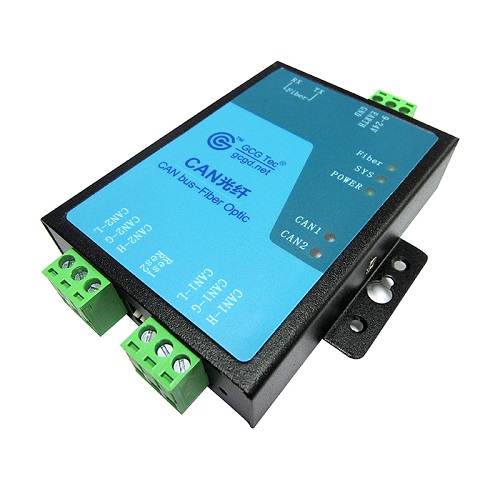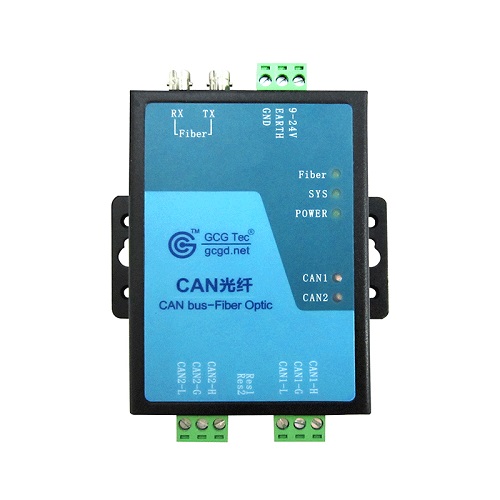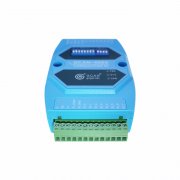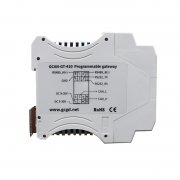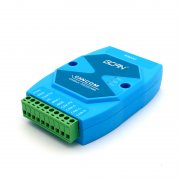Brief introduction of optical fiber to can module and specif
Introduction of optical fiber to can module
The optical fiber to can module is an industrial level can bus to optical fiber converter integrating one channel of standard optical fiber interface (single mode, multi-mode, SC, St optional) and two channels of standard CAN bus interface. It can analyze the CAN bus data transparently and losslessly into optical signal, and then analyze the optical signal transparently and losslessly into can bus data. Using the unique bus signal conversion technology of our company, the conversion time between can data and optical signal can be microsecond, ensuring the real-time communication, so the optical fiber to can module can support any can bus communication protocol such as CANopen, SAEJ1939, DeviceNet, NMEA2000, etc.
Fiber to CAN
The optical fiber to can module can convert can bus data into optical signal and transmit it through optical fiber. Using the module in pairs, users can easily extend the communication distance of CAN bus, effectively eliminate the long-distance communication interference, and avoid the damage to the bus and equipment caused by electromagnetic interference, ground ring interference, lightning stroke, etc.
The optical fiber to can module has two independent can bus channels with isolation, which can extend two different can bus communication distances at the same time. The module is a key tool for industrial bus transformation, long-distance communication and bus interference isolation. At the same time, the module has the characteristics of small size, easy installation, plug and play, and is also the best choice for existing system integration.
The optical fiber to can module adopts high-speed 32-bit industrial level processor, with power supply voltage of + 9 ~ 24V, electrostatic immunity of ± 4KV, air discharge of ± 8Kv, transient pulse group immunity and ± 1kV, surge immunity of ± 1KV. The optical fiber interface has single-mode, multi-mode, SC, St options. The CAN bus uses the Open3 terminal, which supports the baud rate of 5Kbps ~ 1Mbps. The CAN bus follows the iso1198 standard and supports the can2.0a/b frame format. The optical fiber to can can can work normally in the temperature range of - 40 ℃ ~ + 85 ℃. After the customer purchased the optical fiber to can module at Shenyang Guangcheng technology, they only need to fix it with screws, which is specially designed for industry.
